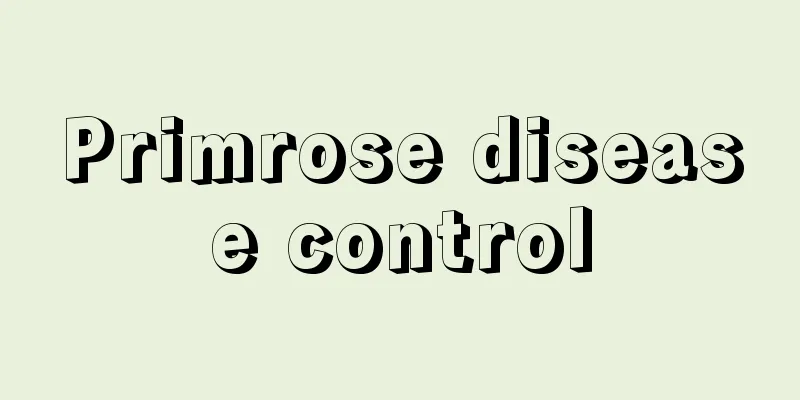Primrose disease control

Primrose mosaic diseasesymptomThe mosaic disease of primrose is a plant-wide disease caused by the mosaic virus, which can cause the leaves of the plant to become deformed or smaller, and is characterized by dark green stripes distributed throughout the plant. If affected by this type of disease, the infected plants will not bloom, and the flowers will be small and deformed. The virus is mainly spread by aphids, and the disease mainly infects the diseased plants of the surrounding weeds. Prevention and treatment methodsFirst, remove weeds and diseased grass and destroy them in batches to reduce the source of infection. Secondly, eliminate aphids in time to prevent the spread of the virus. Primrose brown spotsymptomPrimrose brown spot disease often occurs on Primrose and is caused by bacteria. Infected plants will have brown spots on their leaves. The virus from the diseased plants is spread to other plants through wind and rain. Prevention and treatment methodsAt the early stage of the disease, spray 70% of Benomyl for spraying and prevention. Botrytis cinereasymptomPrimrose gray mold is the most common disease of primroses and occurs throughout the country. When the plant is infected by the disease, it will turn yellow and shed its leaves. The disease mainly infects leaves and tender stems. It often occurs at leaf tips and leaf margins. When the disease first occurs on the plant, water-like spots will appear, which will gradually grow larger to form brown spots and gradually rot. In the later stage, gray-yellow layers will be formed, which will gradually rot and fall off. If the climate is relatively humid, the disease is characterized by the appearance of a gray mold layer, which mostly occurs when the temperature is 20℃ and is most likely to occur when the air humidity is high. Prevention and treatment methodsPlanting should be done reasonably and the planting density should not be too close. Pay attention to keeping the environment well ventilated and reducing the humidity in the air. Cut off diseased leaves and dead branches in time to reduce the source of infection, so that the incidence rate will be reduced. During the outbreak period, spray 50% of cypermethrin for prevention and control. |
>>: Poinsettia Diseases and Control Methods
Recommend
How to propagate kiwifruit
1. Breeding Methods 1. Time: The seeds of this ty...
What's wrong with the yellow leaves of the newly planted Monstera?
1. Inadaptability Reason: The newly planted Monst...
How to propagate ginkgo by cuttings
Cutting time Ginkgo can be propagated by cuttings...
Breeding methods and precautions of Guangdong Evergreen
Use soil Guangdong evergreen likes loose, fertile...
The breeding methods and precautions of Caragana
How to cultivate Caragana Temperature and light C...
How to propagate the beauty plum
Cutting method of beauty plum Cutting method is t...
How to grow the succulent plant New Jade Ornament
How to grow the succulent plant New Jade The succ...
How to water old succulent plants
Watering tips for old succulent plants Old succul...
How to prune jasmine branches and leaves? How to prune jasmine branches
1. Early spring growth period Jasmine grows very ...
How to prune potted bamboo
How to prune the branches of potted bamboo Bamboo...
Ginger planting method and best time
Ginger, a popular condiment, plays an important r...
Is it good for pregnant women to eat coriander? What are the benefits of coriander?
1. It is not good for pregnant women to eat coria...
How to water peach egg in summer
Watering principles for peach egg in summer When ...
Can the dripping Guanyin be placed indoors?
1. Is it possible? It can be placed indoors. It i...
How to remove freckles with garlic
1. Freckle removal method 1. Peel and clean the g...









